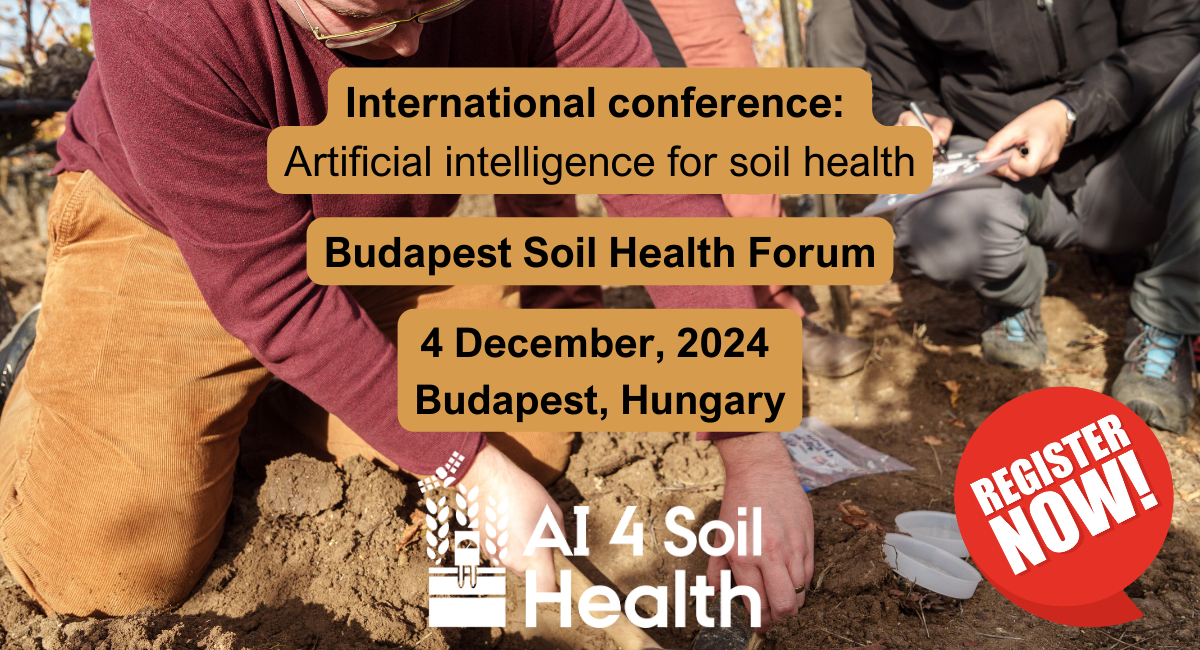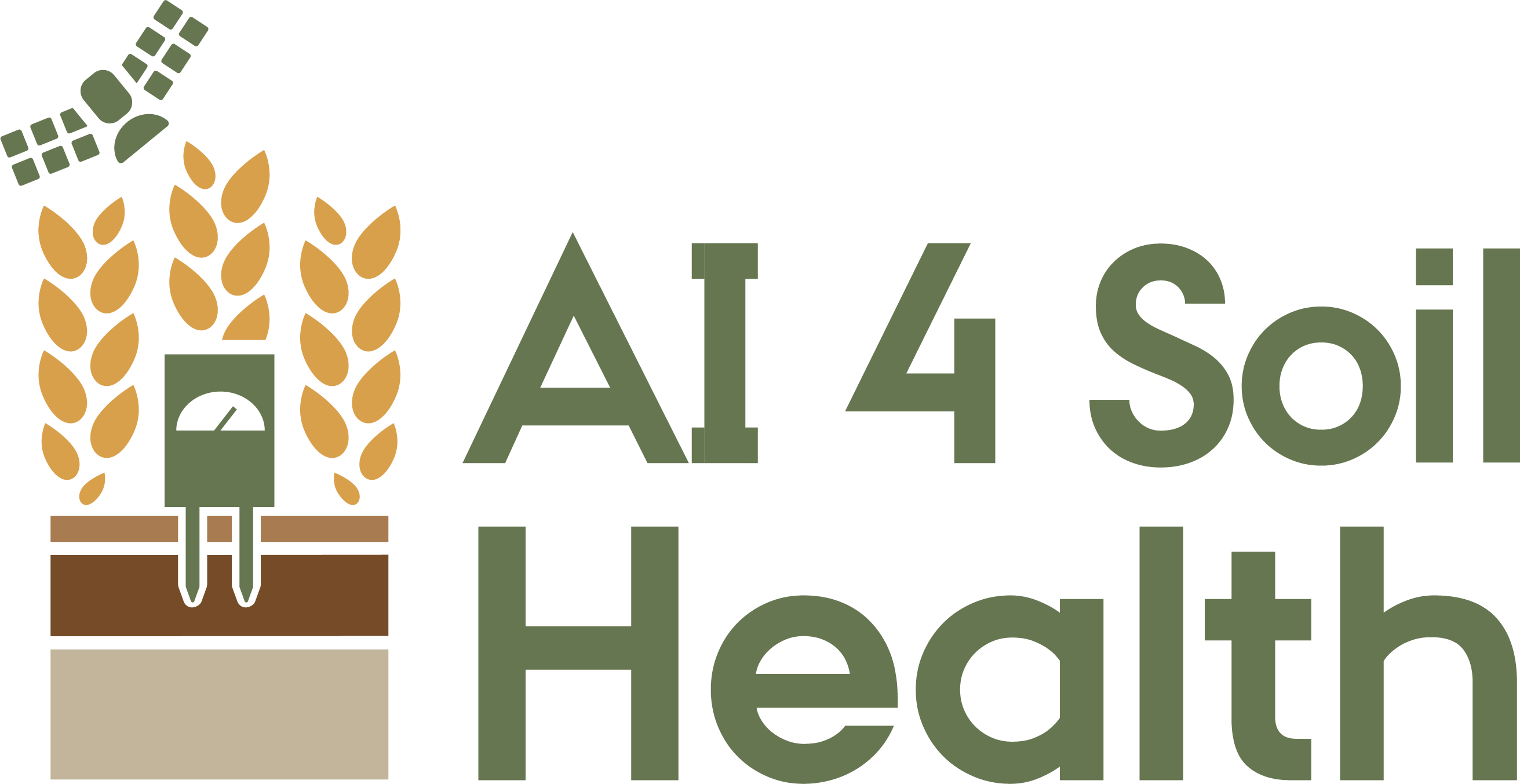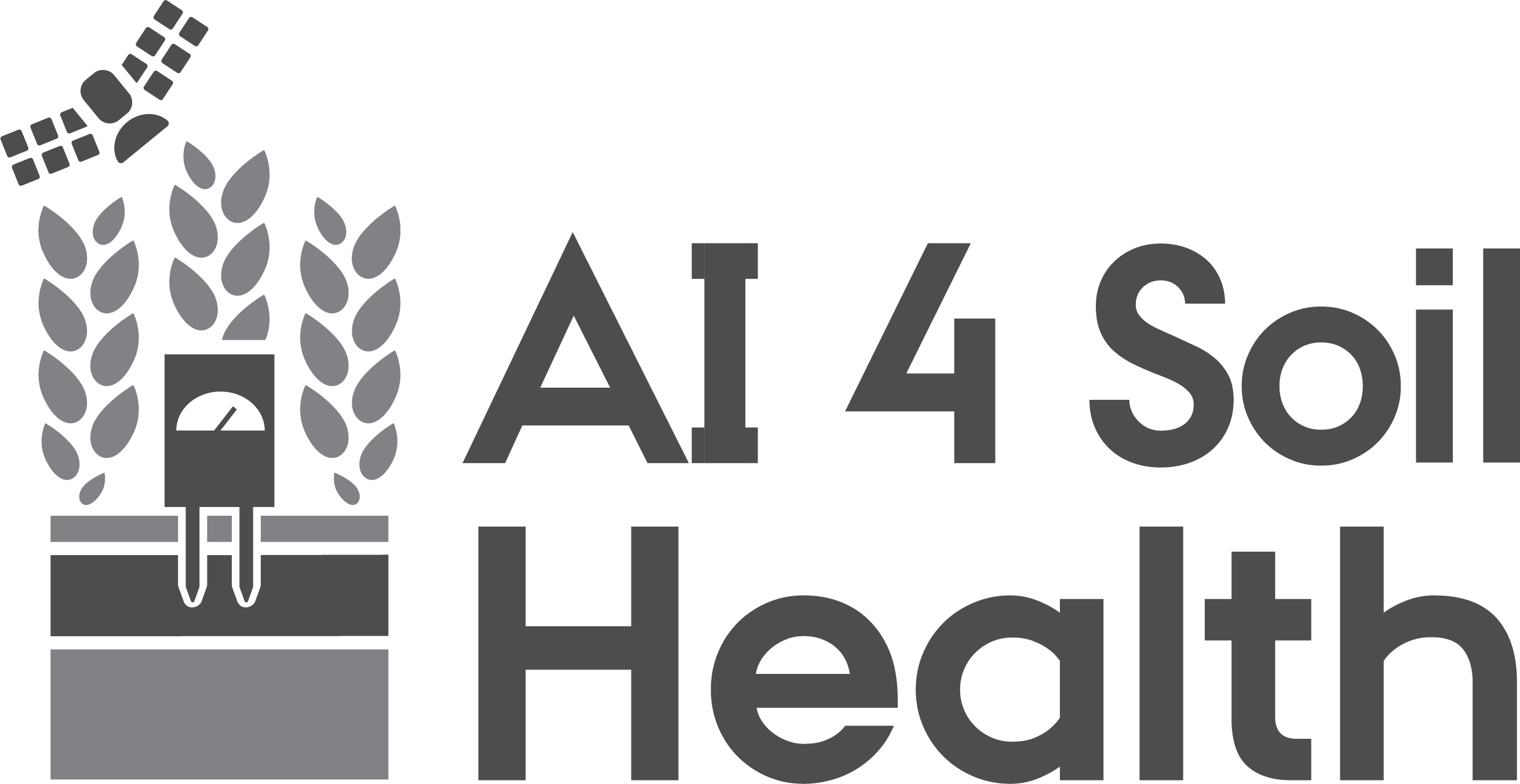
- This event has passed.
International conference: ARTIFICIAL INTELLIGENCE FOR SOIL HEALTH
December 4, 2024

Join us for an international conference on understanding the role of AI and other digital tools on soil health taking place as part of the Budapest Soil Health Forum on 4th December 2024, in Budapest, Hungary. This event is to be held back-in-back with the high-level closing event of the Agricultural Chapter of the Hungarian EU presidency.
REGISTER NOW FOR ONLINE ATTENDANCE (Free)
This “AI for Soil Health” conference aims to bring together leading experts, researchers, and practitioners to discuss the latest advancements and applications of artificial intelligence in enhancing soil health.
Key topics include:
AI-driven soil analysis and monitoring
Predictive modelling for soil management
Sustainable agriculture practices
Innovations in soil health assessment
Join us for a day of insightful presentations, networking opportunities, and collaborative discussions to advance the field of soil health through AI solutions.
REGISTER NOW FOR ONLINE ATTENDANCE (Free)
Timetable
- 8:00 – 9:00 Registration
- 9:00 – 9:10 Welcome/opening
- 9:10 – 10:30 Plenary
- 10:30 – 11:00 Coffee
- 11:00 – 12:30 Session 1
- 12:30 – 13:30 Lunch
- 13:30 – 14:45 Session 2
- 14:45 – 15:45 Coffee + poster
- 15:45 – 17:00 Session 3
- 17:00 – 17:15 Wrap up, closure
Sessions and speakers
Plenary (20 min each presentation)
- Arwyn Jones, Joint Research Council –
- Zsombor Diriczi Démétér, Biosystems Kft.
- Tomislav Hengl, Opengeohub
- Kakha Nadiradze, DesertNet
Session 1: Soil health indicators, monitoring and spatial modelling (10 min. per presentation + 5 min. Q&A)
- Grant Campbell, University of Aberdeen: ‘Developing a robust soil health indicator framework for Europe’
- Daniel Kibirige, University of Cape Town: ‘From the Ground Up: A Comprehensive Review of Soil Health Indicators in South Africa’
- Nasem Badreldin (online speaker), University of Manitoba Integrating: ‘Artificial Intelligence with Spectral Analysis for Precision Soil Organic Carbon Estimation as Soil Health Assessment’
- Domagoj K. Hackenberger, BioQuant: ‘Leveraging Large Language Models (LLMs) for automated soil health data extraction from ecological research papers’
- Lucas Gomes, Aarhus University: ‘Soil monitoring system at Pan-European scale for soil health assessment across space and time’
Session 2: Novel in-situ and laboratory techniques to assess soil health (10 min. per presentation + 5 min. Q&A)
- José A. Cayuela-Sánchez, Spanish National Council for Scientific Research: ‘A compositional (CoDa) for soil organic carbon VISNIR measurement method preventing moisture interference’
- Jasmin Fetzer, Swiss Federal Institute for Forest, Snow, and Landscape Research: ‘Novel, laboratory-independent device to measure extracellular enzymatic activity in soils’
- Carlos Abrahams, Baker Consultants Ltd: ‘A sound approach to monitoring soil health (ecoacoustic techniques)’
- Tamara Djerdj, Josip Juraj Strossmayer University of Osijek: ‘Application of AI-driven system for monitoring earthworm behaviour in ecotoxicological soil health assessments’
- Fatemeh Hateffard, Stockholm University: ‘New methods for in-situ soil health surveillance’
Session 3: From degradation assessment to smart farming (10 min. per presentation + 5 min. Q&A)
- Branimir K. Hackenberger, SCIOM Bayesian: ‘Networks for soil degradation risk assessment using multivariate data’
- Mehdi Afshar, Hamburg University of Technology: ‘Assessment of the Impact of Climate and Land Cover Changes on Land Degradation’
- Claudia Helena Ramirez Soler, University of Salamanca: ‘Vulnerability of viticulture to climate change by means of satellite remote sensing techniques in the DO Ribera del Duero’
- Juan Manuel Núñez Velasco, University of Salamanca: ‘GenAI-based recommender system for monitoring and control of urban gardens’
- Stefan Pfeiffer, Austrian Institute of Technology: ‘GmbH Paving the Way towards Digitalisation Enabling Agroecology for European Farming Systems (PATH2DEA)’
Poster Session:
- Livio Antonielli, AIT Austrian Institute of Technology: Microbial Community Prediction in Plant-Soil Systems Using Machine Learning
- Sarem Norouzi, Aarhus University: Advanced Physics-Informed Machine Learning for Estimating Key Soil Properties Linked to Fundamental Soil Health: Particle Size Distribution and Water Retention Curves
- Robert Minarik, OpenGeoHub Foundation: Mapping the WRB 2022 soil types of Europe at 30 m resolution
- Thomas Oberleitner, International Institute for Applied Systems: Analysis Polynomial Regression Ensembles for Predicting Crop Yield and Soil Quality Indicators: Towards a Future Soil Health Forecasting Service
- Xuemeng Tian, OpenGeoHub: Spatiotemporal prediction, uncertainty estimation and their assessment of soil organic carbon density (2000–2022) at 30~m resolution for Europe
- Marko Reljic, University of Zagreb: Predicting Soil Salinity Using Sensor Data and Machine Learning in a Hydromeliorated River Delta
- Marek Bednář, Palacký University in Olomouc: Optimizing Soil Block Division to Minimize Erosion: A Comprehensive Simulation Approach Using Agent-Based Modelling
- Dominik Bittner, University of Aberdeen: Towards use of AI-Powered Hybrid Soil Health Assessment to Design Nature-Based Solutions for Restoration of Degraded Soils in Sub-Saharan Africa

